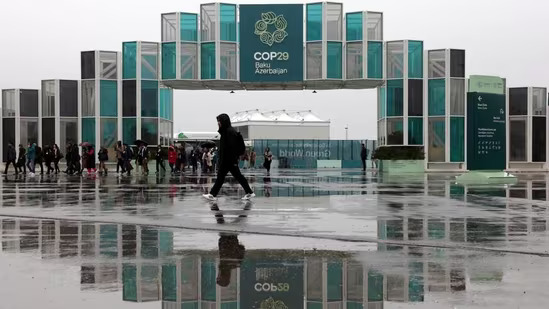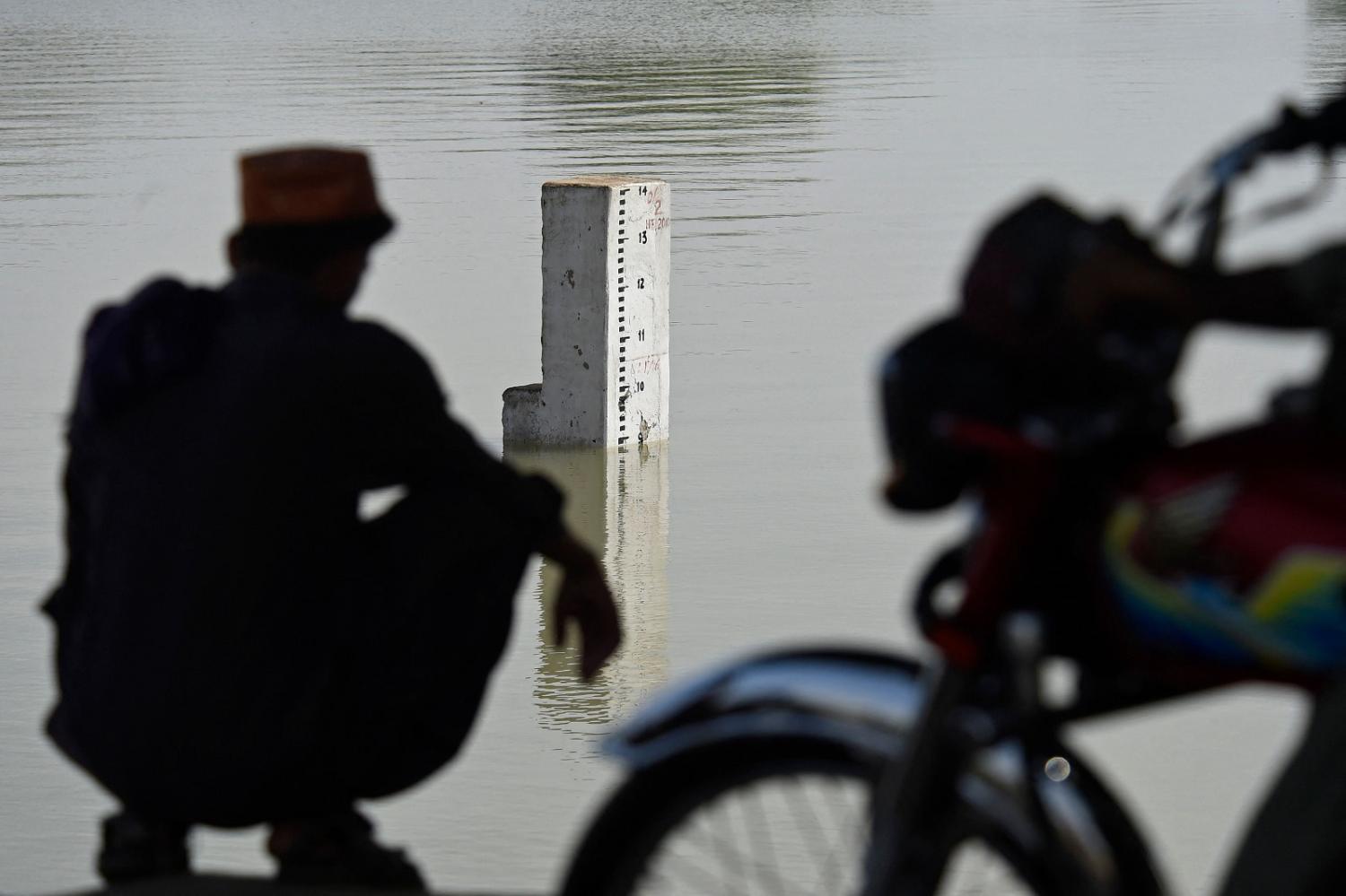Uncertainties Around Trump a Potential for New Opportunities?
▶️ Global Divisions and Shifting Norms: 2024 underscores deepening global divisions between developed and developing nations, as evidenced by the climate COP29 in Baku. This shift challenges traditional Western-led global norms and opens opportunities for emerging economies to influence new systems.
▶️ Impact of a Second Trump Presidency: A Trump return may reshape global governance, with cascading effects on climate policies, social rights, and globalisation. However, it could also spur domestic innovation in clean technologies and recalibrate the balance of international partnerships.
▶️ Opportunities Amid Uncertainty: The rise of mini-lateral alliances, innovative collaborations, and commitments from emerging markets present new pathways for climate action, economic development, and inclusion of traditionally underrepresented nations.
2024 has been a year of division across the global stage, most recently displayed at the closing of the climate COP in Baku. A division that has been simmering for years between richer developed economies and the rest of the world; deepened through actions around the covid 19 global health pandemic and the war in Ukraine and the humanitarian crisis in Gaza The idea that global norms that were designed and enforced by a few for the entire population would need revision is now gaining traction, underscored by what many are seeing a duplicitous actions and decisions by the west. But the end of what we knew, a system that benefitted a very small monitory might not necessarily be the doom we imagine – it allows for new voices to emerge and presents a whole host of opportunities that were perhaps once overshadowed by an overwhelming American presence.
Trump’s return to the White House is certain to transform global governance, relationships, and how global systems do business. His re-election has prompted a host of warnings and that might be right in many ways. The cascading effects could be in many directions, dire for some and perhaps hopeful for others. It gives a fillip to groups that target pro-choice in the abortion debate, it opens up racism in a form that can be targeted and institutionalised, many say that LGBTIQ+ rights are likely to face backlash. With a more inward looking American it allows for other countries to do the same, where globalisation as we knew it might truly wane. The numerous elections this past year have also seen citizens elect more conservative governments, many that are looking inward.
One of the spaces we are likely to see a fair amount of turbulence is in the climate space, where there is much uncertainty and speculation on what role America will play in this in the next four years and beyond. It is unclear if during his second term President Trump might pull out of the Paris Agreement once again, undo some of the global funding structures that have been put in place or generally play spoilsport during climate related discussions and events. There is speculation that he might also gut the US Environmental Protection Agency, as mammoth a task as that might be, or at the very least remove regulations for further oil and gas drilling. The United States continues to be one of the highest emitters in the world, currently second only to China, which is unlikely to change in the near future.
On the other hand, Trump could also prompt greater capitalism at home and provide tax-benefits to clean technology or renewable energy, one of the fastest growing sectors in America, many located in Republican states and retain to some extent President Biden’s 2022 Inflation Reduction Act. American businesses fundamentally do not want to fall behind globally, especially to China, and they are likely to ensure that policies allow them to stay ahead. The question to ask if this uncertainty could become an opportunity for all, and if so where do those opportunities lie. A blanket doomist attitude robs people and governments of agency and the recognition that they could play a more decisive role or the incentive to do so.
Accountability lies across the board, the recent agreement that was struck at the close of CoP29 was by many accounts a travesty of justice. The final deal that pledged $300bn annually, with $1.3tn only as a target is a far cry from what is needed. The agreement also is a breakdown of promises made in previous years, by several countries that claim to understand and value the plight the developing world is in. It is also extremely likely that many countries that are beginning to experience climate extremes, such as the devastating floods that occurred in Spain earlier in the summer, will need to invest more domestically to deal with their own crises. However, wringing our hands that a new Trump Presidency will hasten the demise of the planet and undo any gains of the last few years absolves other rich developed countries of any responsibility and future action. There is much work to be done by all, including by developing nations and emerging economies that seemingly want a carte blanche on their development agenda because of historical reasons.
Rising economies across the global south are pushing back against global systems that were not designed to include their complete participation nor were they able to reap the benefits of these systems. Mini-laterals are on the rise with countries that might have been once considered odd bedfellows, where the underlying theme is benefit and long term economic development. We see countries like India and Australia acting more decisively in building new partnerships on everything from education to renewable energy to gender and digital public infrastructure. European countries, despite war on their continent, are finally engaging more proactively beyond their immediate theatre – incoming European Commission President Von der leyen’s commitment to a creating a clear strategy on the Indo-Pacific is a case in point.
Uncertain developments also offer new opportunities and markets and it is up to the rest of the world from governments down to civil society to form new partnerships and revitalise other efforts. The UK, Brazil, Mexico and Indonesia all announced new targets and re-affirmed commitments on reducing emissions, creating new market opportunities. Emerging markets offer spaces for collaboration and transfer of ideas and technology that might not have been considered in the past. It also creates a space to revitalise and scale up local indigenous ideas that have the potential to transform societies without needing large scale funds or big tech solutions.
India for example has been working with communities in the Pacific Islands on small scale women led programs that tackle water scarcity, energy needs, digital literacy and skilling. Least developed countries cannot wait any longer for big financing and large expensive solutions, there is a need for countries that have experience, knowledge and capacity to begin filling the gaps. Multiple hazards and cascading risks from the climate crisis are already devastating communities across the world and we need fresh innovative thinking and collaborations to move forward; organisations like the International Solar Alliance that focuses on a bottom up approach are potential avenues for this. Australia for example, with its abundant wind and solar power and skilled workforce, can build and invest in industries of the future with smarter climate policies both at home and in global alliances. Many developed nations might feel like they have lost a key partner; but it should make them more determined to work with others. The rise of the mini-laterals, not just on traditional lines of defence and security but on emerging technology and space collaboration are positive developments. The expansion of the G-20 to include more voices both geographically but also thematically has the potential to enact real change within some of the smaller groupings, provided is does not become another large unwieldy global organisation.
Undoubtedly a second Trump presidency will bring about changes many will be unhappy with, and many will be right. But the rise of so many far right leaders in Europe and autocrats around the world are equally worrying and must not be overshadowed by what is happening in one country. While America might still be a global leader for many valid reasons, the world is not as it used to be and this presents emerging economies with the opportunity to shape global systems and a future that could be better for all.
This article was orginally published in December 2024, in Korea On Point.


